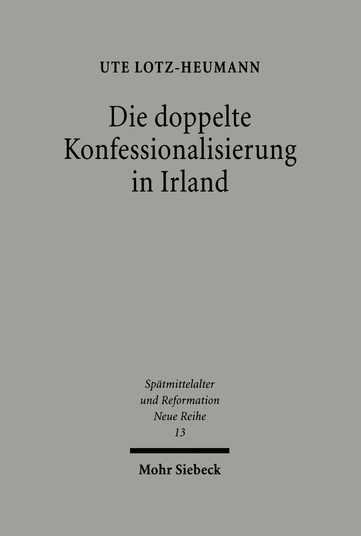Theology
Ute Lotz-Heumann
Die doppelte Konfessionalisierung in Irland
Konflikt und Koexistenz im 16. und in der ersten Hälfte des 17. Jahrhunderts
[The Double Confessionalization in Ireland. Conflict and Coexistence in the 16th and the First Half of the 17th Century. By Ute Lotz-Heumann.]
139,00 €
including VAT
including VAT
cloth
ISBN 978-3-16-147429-3
available
Also Available As:
Published in German.
In Ireland, a peripheral kingdom in the 'multiple kingdom' of the English monarchy, a process of 'confessionalization from above' initiated by the Protestant state church and the English state confronted a process of 'double confessionalization from below' initiated by the country's traditional elites and supported by the Catholic underground church. In this process of 'double confessionalization' neither the Protestant nor the Catholic confessionalization was successful: the state-sponsored Protestant one failed because it could not achieve an integration of politics and religion in Ireland; the oppositional Catholic one failed because it could not break the legal status and rhetorical confessional monopoly of the church of Ireland. As a consequence, the history of Ireland in the first half of the early modern period was characterized by both 'conflict' and 'coexistence'. Ute Lotz-Heumann analyzes the process of 'double confessionalization'.
